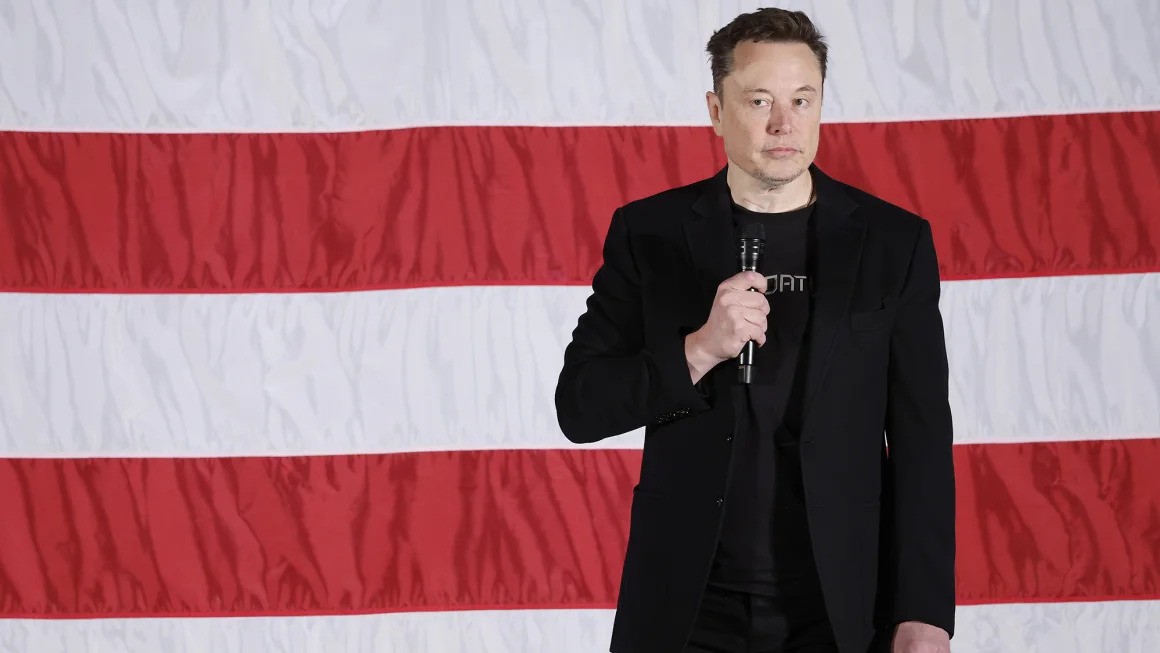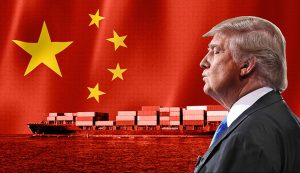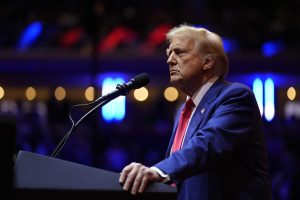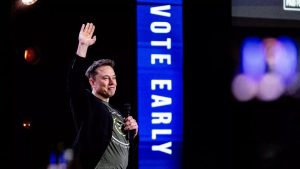Elon Musk’s Latest Controversy: Why Any Other CEO Would Be Fired
USA NEWS – Elon Musk is no stranger to controversy. As the CEO of Tesla, SpaceX, and owner of the platform formerly known as Twitter (now X), his public persona is as divisive as his business decisions are influential. However, Musk’s most recent antics on social media, involving inflammatory remarks referencing Nazi figures and discriminatory language, have raised eyebrows for their sheer audacity. For most CEOs, this would be career suicide. Yet Musk seems untouchable. Why?
In this article, we dive deep into Musk’s latest controversy, explore how he’s structured his wealth and companies, and consider why any other CEO would be ousted for such behavior.
On a Monday morning, Elon Musk decided to stir controversy by tweeting a comparison to Nazi figures while simultaneously mocking modern pronoun usage. While offensive and inflammatory, this is not entirely unexpected from Musk, who has a history of making divisive statements online. The tweet was in response to a Der Spiegel article that drew parallels between Musk and a media mogul who helped Hitler rise to power.
This incident is far from Musk’s first flirtation with dangerous rhetoric. Just last month, he promoted an interview on his platform conducted by Tucker Carlson. The interview featured a Nazi sympathizer who minimized the atrocities of the Holocaust and demonized Winston Churchill as the main villain of World War II. Musk initially endorsed the conversation as “very interesting” and “worth watching,” but later deleted the post after widespread backlash.
Yet, it’s notable that despite the outrage his comments and endorsements generate, Musk rarely deletes his tweets or apologizes for them. His seemingly untouchable status raises a fundamental question: why is Musk able to make such statements and remain in power while other CEOs would be swiftly shown the door?
The Role of Accountability in Leadership
For most CEOs, the role comes with a hefty responsibility. Being the public face of a multi-billion-dollar company requires a level of decorum and professionalism, particularly in the age of social media, where words can have far-reaching consequences. A single off-color tweet or a tone-deaf statement can result in public outrage, investor panic, and calls for resignation.
According to a PwC study in 2018, more CEOs were ousted for ethical lapses than for financial failures. The study highlights a shift in corporate culture where ethical behavior is no longer optional but mandatory. CEOs are held to higher standards as they are not only responsible for the company’s financial health but also its reputation and social responsibility. So, how does Musk consistently escape consequences?
Musk’s Safety Net: A Board of Allies
The key to Musk’s invulnerability lies in the way he has structured his companies and wealth. As the largest individual shareholder of Tesla, Musk holds a unique position of power that shields him from the consequences most CEOs would face. The second-largest shareholder? His brother, Kimbal Musk, who also sits on Tesla’s board. This nepotistic arrangement creates a conflict of interest, as the board, which should hold Musk accountable, is largely composed of his allies.
In a 2023 ruling, a Delaware judge overturned Musk’s $55 billion compensation package, citing the lack of independence among Tesla’s board members. The ruling emphasized that those entrusted with oversight are too closely aligned with Musk to act impartially. This makes it nearly impossible for Musk to be held accountable for his public statements or ethical lapses. The loyalty of the board members insulates him from the scrutiny that other CEOs would likely face.
The SpaceX Shield
Tesla isn’t the only company in Musk’s portfolio benefiting from his wealth and structure. SpaceX, another pillar of Musk’s empire, operates in a unique space—pun intended—where there is virtually no competition. As a private company, SpaceX doesn’t have to worry about public shareholders or their opinions. This autonomy allows Musk to wield his power without the same level of accountability that public companies must adhere to.
SpaceX’s closest competitor, Boeing, has suffered a string of high-profile failures in recent years, further solidifying SpaceX’s dominance in the market. NASA, a key client of SpaceX, has even called upon the company to rescue Boeing astronauts from space after a malfunction with Boeing’s space shuttle. With such a stronghold in the aerospace sector, Musk’s missteps in public relations seem insignificant compared to the technical successes of his companies.
The Litigation Strategy: Playing Offense
Another aspect of Musk’s strategy is his use of litigation to silence critics. When advertisers began pulling out of X after Musk’s platform became a haven for Nazi sympathizers, Musk responded by filing lawsuits. According to Fortune, Musk and his companies have filed at least 23 lawsuits in federal court since July 2023. These lawsuits target various entities, from competitors and startups to watchdog groups and even pop star Grimes, the mother of three of his children.
Musk’s aggressive legal tactics are part of a broader strategy to maintain control and intimidate those who challenge him. By filing lawsuits against critics, Musk creates an environment where dissent is dangerous, and accountability is scarce. This approach allows him to maintain a position of power despite his increasingly erratic public persona.
The Political Turn
One of the most alarming trends in Musk’s behavior is his apparent embrace of extreme political ideologies. Described by some as a “dark MAGA” turn, Musk’s recent comments and affiliations have alienated a portion of Tesla’s investor base. Even some of Musk’s strongest financial backers are starting to voice concerns about the impact his political rhetoric could have on Tesla’s brand.
Dan Ives, managing director at Wedbush Securities, has noted that Musk’s growing political involvement is “not bullish for the Tesla brand.” With demand for Tesla vehicles already showing signs of slowing in the United States, Musk’s controversial political stances could further erode customer trust and investor confidence.
The Double Standard for the World’s Richest Man
Ultimately, Musk’s ability to retain his position despite his controversial actions and statements highlights a double standard in corporate governance. His immense wealth and control over his companies grant him a level of protection that other CEOs simply do not have. If any other executive were to make even one of the comments Musk has made, they would likely face immediate consequences.
Musk’s status as the richest person on the planet gives him virtually unlimited resources to protect himself, whether in court, on social media, or in the boardroom. His ability to control the narrative and shield himself from repercussions is a testament to the power that comes with extreme wealth.
Conclusion: Musk’s Unique Position in Corporate America
Elon Musk is a unique figure in corporate America, not just for his technological innovations but for his ability to sidestep the consequences of his public actions. While most CEOs would be fired for making similar statements, Musk’s control over Tesla and SpaceX, combined with his immense wealth, allows him to operate with impunity.
However, this unchecked power comes with risks. As Tesla investors grow increasingly wary of Musk’s political affiliations and controversial remarks, the question remains: how long can Musk continue to push the boundaries before even his closest allies start to turn against him?



